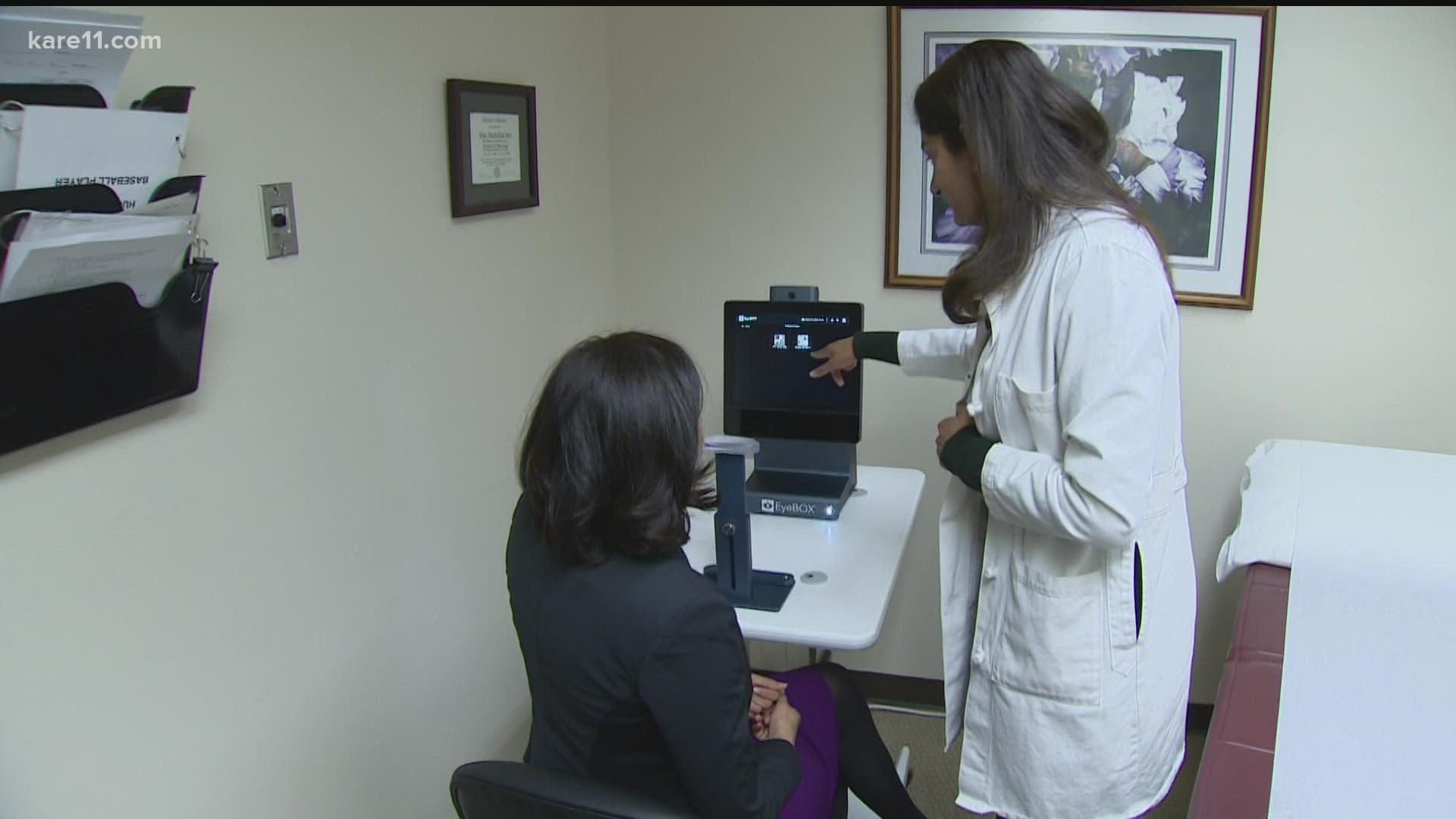MINNEAPOLIS — A Minnesota surgeon, known for her technical expertise and in addition to being named a "Top Doctor in Neurosurgery," is making headlines again.
Dr. Uzma Samadani invented a first-of-its-kind device to test concussions called the EyeBox. The U.S. Food and Drug Administration recently approved the device that's lightweight and non-invasive.
"Basically, this is a proxy for a very detailed neurologic exam," said Dr. Samadani. "This tells us exactly how well the brain stem is functioning."
The machine, which the doctor calls an "aid in diagnosis," measures pupil position as a patient watches stimulating videos for less than four minutes.
The test is purely objective, unlike other exams that test symptoms that can be manipulated.
"This is a much more sensitive way of assessing eye movement than 'follow my finger,'" said Dr. Samadani, who first came up with the idea in 2011 and went on to collect research at HealthFair 11 at the State Fair in 2016.
The older, first-generation machines weighed more than twice as much as the newest one that's powered only by battery.
"It's a completely different machine," said Rosina Samadani, Uzma's sister. Rosina is an engineer and CEO of Oculogica, the company the pair started together.
Her job is to fundraise and sell the product to physicians for now, with hopes of it being more accessible to schools, sporting events and emergency rooms in the future. Rosina wouldn't confirm how much it costs, only saying it was in the thousands.
"This was a big challenge and we had to tackle this together," said Dr. Samadani.
"This work needs to be done and there's no reason women can't be doing it," said Rosina who acknowledged that women-led start-up companies usually get less than 3% of investor funding.
Additionally, only 6% of neurosurgeons are board-certified. Dr. Samadani is one of nine board-certified female neurosurgeons actively practicing in Minnesota, making their accomplishments that much more rewarding by paving the way to empower more people.
"My goal has been to change the way brain injury is diagnosed and defined because I see how it massively alters the course of people's lives," said Dr. Samadani.
A St. Paul company is building about four machines a week that a doctor can typically use on a patient immediately after diagnosis. The sisters are FDA cleared for up to one week after, but have published data charting improvement until full recovery.
Watch more local news:
Watch the latest local news from the Twin Cities in our YouTube playlist:

